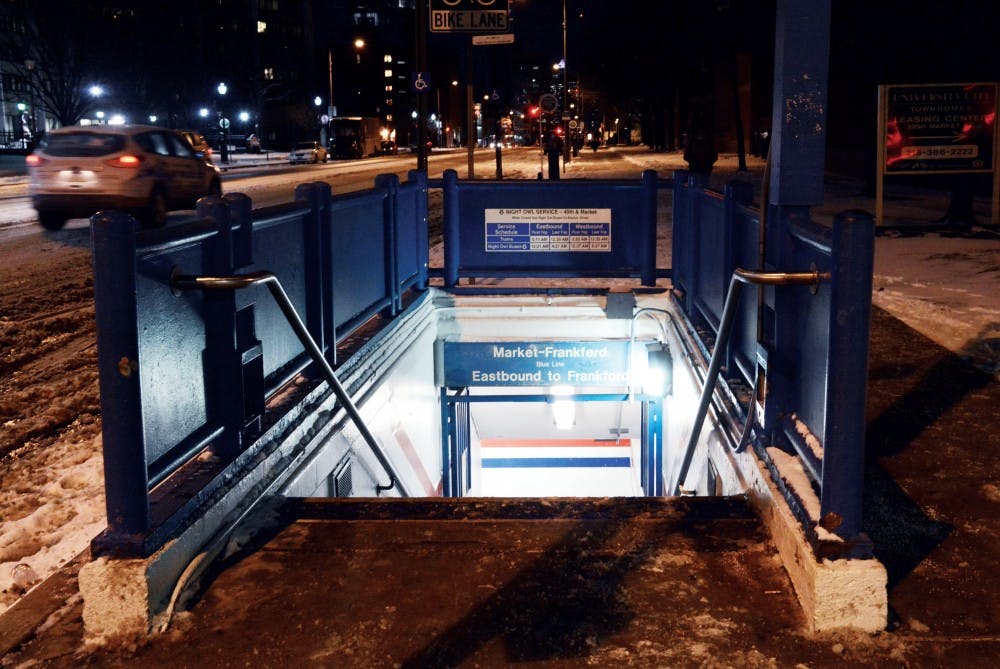After years of community advocacy, SEPTA will finally install elevators at the 40th Street Station.
Councilperson Jannie Blackwell announced plans last Wednesday to install elevators and renovate the station located on 40th and Market streets so that it complies with the Americans with Disabilities Act. This update will allow more than 1,000 residents with limited mobility to access the Market-Frankford Line.
Senior citizens and mothers with strollers are people who might face the stairs as “a roadblock” to entering SEPTA at that station, SEPTA Director of Media Relations Jerri Williams said.
“We wanted to bring ADA compliancy to that station, we know it’s a very active station and we want people able to be able to use the Market-Frankford Line,” Williams added.
SEPTA is still in the design phase of the project, but it plans to start and potentially finish it by the end of 2016. Other than new elevators, renovations will include new signs, doors, gates, painting, flooring and ceiling systems.
While the elevator location has not yet been decided, potential areas include the northwest corner and southwest corner of the 40th and Market intersection. The estimated cost for the installation will be $6.2 million, Williams said.
Despite these changes, the station will not shut down during any point in construction, she added.
The changes follow the Jan. 22 death of Penn biochemistry professor Ellis Golub , who fell headfirst down the station’s stairwell after trying to avoid a ladder at the bottom of the stairs. Golub’s wife, Linda Golub , told the Philadelphia Daily News that she wants SEPTA to accept responsibility for his death.
“I want somebody to say they’re sorry ... that this shouldn’t have happened,” she said. “This man died for no reason, and I want to keep it from happening to somebody else.”
Williams said that the plans to install elevators at the station were not due to Golub’s death. She declined to comment further about his death due to the possibility of future litigation.
Installing elevators at the station has been a community priority since at least August 2006, when the Friends of 40th Street, The Partnership CDC and Penn Praxis held meetings to generate urban design recommendations for the intersection.
“From a social equity perspective, it’s a huge difference for people with limited mobility to access the station with an elevator,” said Andrew Frishkoff , executive director of Local Initiative Support Corporation Philadelphia. The current state of the station “is really a problem,” he added.
Frishkoff said that without elevators, many cannot access the businesses around 40th Street Station, since riders with limited mobility have to get off at stops east or west of 40th Street. He explained that this limits “the number of people that would shop, live, or work in the offices or homes in or around 40th Street.”
Changes to the station are part of SEPTA’s “Catching Up” program, a cluster of SEPTA’s most important projects that will be funded through over $300 million in state funding.
“We know that elevators are the right thing to do,” Williams said.



